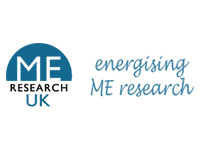Cutting-Edge Blood Test Offers Hope for ME/CFS Diagnosis and Understanding

Individuals living with ME/CFS often face years of uncertainty due to a lack of reliable diagnostic tools. Up to 91 percent of ME/CFS cases go undiagnosed, leaving sufferers without proper medical support for a condition that severely impacts their lives. However, a study published in Advanced Science, with CureME co-authors Eliana Lacerda and Caroline Kingdon, provides a glimmer of hope.
The team, led by the University of Oxford, recently published their preliminary findings on a blood cell-based diagnostic test with study results giving an impressive 91 percent accuracy in distinguishing ME/CFS patients from healthy individuals. Researchers profiled over 2,000 cells from 98 participants, including 61 ME/CFS patients, 16 healthy controls, and 21 individuals with multiple sclerosis, a condition with similar symptoms to ME/CFS. This innovative test uses Raman spectroscopy and artificial intelligence (AI) focused on peripheral blood mononuclear cells (PBMCs). Previous research had hinted at the unique properties of PBMCs in ME/CFS patients, aligning with the theory of impaired energy production in the condition.
The results were promising. With the aid of an AI algorithm, the test accurately identified 91 percent of the participants, even distinguishing between mild, moderate, and severe ME/CFS cases with an 84 percent accuracy rate. While further validation studies are necessary and challenges regarding test accessibility remain, this research provides hope for those who have long sought answers and effective treatment options for this debilitating condition.







